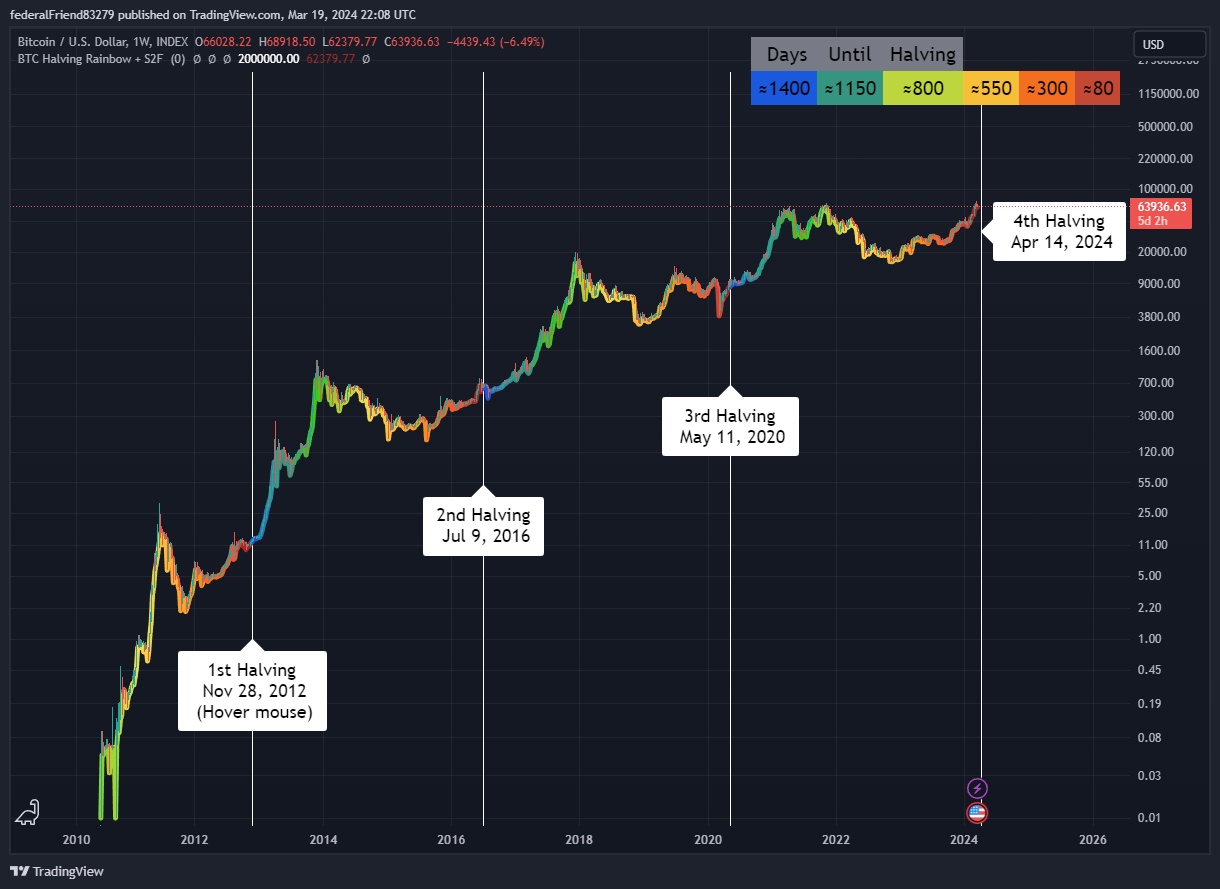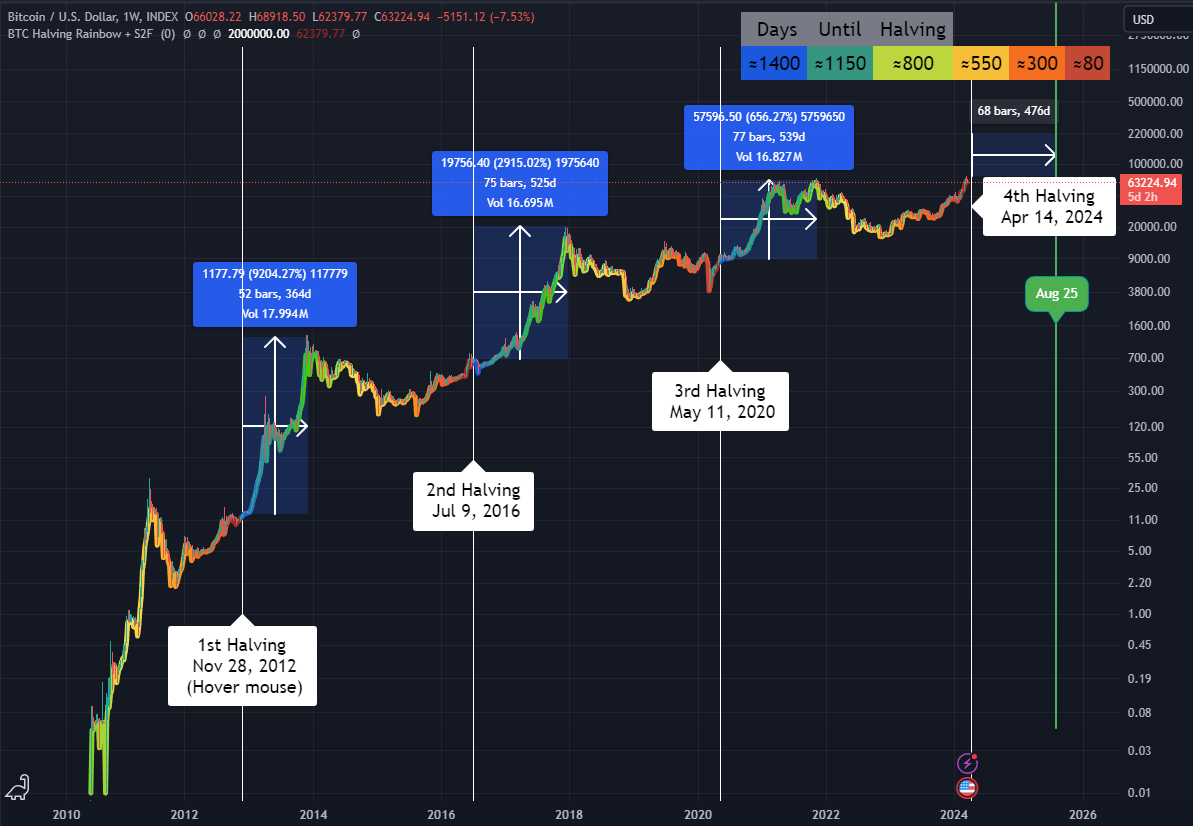Where are we?
Do you believe in the crypto 4 year cycle?
Many people do which gives it power. The power to break and leave a lot of people basically heavy in the red. Until then.however it provides guide hopefully for many more cycles. It is basically the idea that after the halving with a lag Bitcoin prices will rise because miners have to sell their BTC at a higher price, because of decreased rewards. I think the effect will get weaker and weaker caused by the miners as with ordinals and BTCfi new ways for nodes to make money emerge and the amount they have less in their pockets each halvings shrinks in comparison with the already distributed supply.
We are around that halving of rewards for the miners who will then have to either magically double their hashrate somehow or sell their BTC for double to keep the old cashflow. Or they might sell their equipment and stop mining if they cannot sustain profitability (if they can't sell for higher as prices are low), then the difficulty will drop until one can find BTC economically at a lower hashrate.

According to the 4 year cycle based on the time from the halvings it has taken between 364 and 539 days for a cycle top. That would put the top of the next cycle that is just about to start around summer of 2025.

We are a lot of
Reason 2: Misunderstandings About Money and Financial Tools
Many fail to grasp that banks don't truly "lose" money on defaulted loans, as money is essentially created upon borrowing. The silent theft of wealth through inflation goes unnoticed by many, who, if fully aware, might actively protest the erosion of their purchasing power.
Trading is an intrinsic aspect of natural existence. Leverage and arbitrage, often misunderstood or maligned, are simply logical extensions of basic economic principles present in nature and human behavior. If you can borrow, you can leverage. If there are markets selling the same assets for different prices, arbitrageurs will try establish an economic balance where the goods cost the same on different markets and make a profit of it.
Reason 3: The Challenge of Navigating Uncertainty
Trading and fields like Information Security share a critical skill: the ability to operate effectively amidst uncertainty. Successful trading often involves making informed bets based on historical patterns and adapting strategies in real-time.
Interestingly academics are the ones who seem to have the biggest problems with this uncertainty in trading. For overanalyzing closed-minded academics the aversion to embracing imperfect or unproven ideas can lead to missed opportunities, particularly in volatile markets where unconventional wisdom often prevails. They often think that trading is just a gamble in a completely random game, which is of course not true. It is true that no one knows the everchanging rules, and some market makers create and influence part of the rules. That does not mean, that there are no winning tactics to play this game.
Many good traders are not mathematical wonderchilds, but slick and brave adventurers willing to constantly try and fail and learn until they grasp the bigger ideas and have a shield of experience protecting them from (more) stupid decisions.
Reason 4: Emotional Cycles and Market Timing
The cyclical nature of markets demonstrates a common pattern of emotional investing at peaks driven by euphoria and selling in the troughs of despair. Escaping this cycle is crucial to investment success.
Cryptocurrency markets serve as a prime example, where the widespread hype among the general public can signal a market peak, suggesting a strategic exit or short position might be prudent. Conversely, the bear market, often a period of ridicule or indifference towards crypto, presents the best opportunities.
Bull markets make you money, bear markets make you rich.
